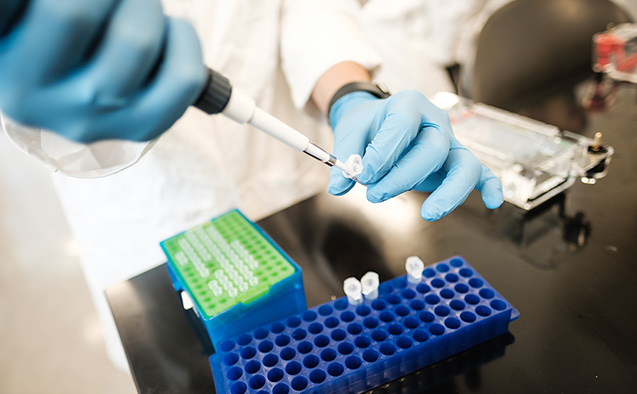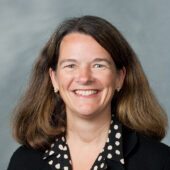High schoolers LEAP into action at Wake Downtown

James Harris, a student at Carver High School, loves sports statistics and is considering a career in mechanical engineering. The 17-year-old is one of a dozen high school students from local Title I schools working in labs alongside Wake Forest scientists this summer.
They are exploring STEM studies and related careers through Wake Forest’s new LEAP (Lab Experiences: Academics and Professions) program. With a grant from the Burroughs Wellcome Fund, Wake Forest is providing hands on lab-based summer internships. Rather than earning money in more traditional high school summer jobs, students accepted to the program have a paid summer experience that directly links to a desired career or educational discipline.
For six weeks, from June 21 to July 29, students work in a lab setting with Wake Forest mentors on individual research projects related to fluid dynamics, nanofibers, water treatment and a range of other topics. They also learn about the principles of the scientific method and how to work in a research lab, then develop and complete a project.
Projects will be shared in a symposium attended by all participating interns, their mentors and their families. Media are invited to attend the event in the lobby of Wake Downtown from 11 a.m. to noon on Friday, July 29.
“We’re thrilled that our first twelve WF-LEAP student interns will present their projects this Friday. For the past six weeks, they have learned research techniques and participated in activities designed to prepare them for further education and careers in STEM. Now they get to ‘show and tell’ what this experience has meant, and we look forward to learning from them and following their next steps,” said chemistry professor Rebecca Alexander, associate dean for research and community engagement and director of Wake Downtown.
WF LEAP also seeks to improve students’ confidence to pursue higher levels of STEM education and related careers. Recent statistics from the National Science Foundation show that underrepresented minorities received 11% of research doctorates in science and engineering, but comprise 27% of the U.S. population and about 30% of the workforce.
Group activities during the program included learning principles of programming using Sphero robots, visiting Inmar Intelligence, meeting with researchers at Wake Forest Institute for Regenerative Medicine and learning about the science of composting with WFU Sustainability. Interns attended workshops on college and career readiness hosted by Wake Forest’s Office of Personal and Career Development, the admissions office, and the Department of Communication Speaking Center.
Categories: University Announcements
Wake Forest News
336.758.5237
media@wfu.edu
Meet the News Team
Headlines
Wake Forest in the News
Wake Forest regularly appears in media outlets around the world.




